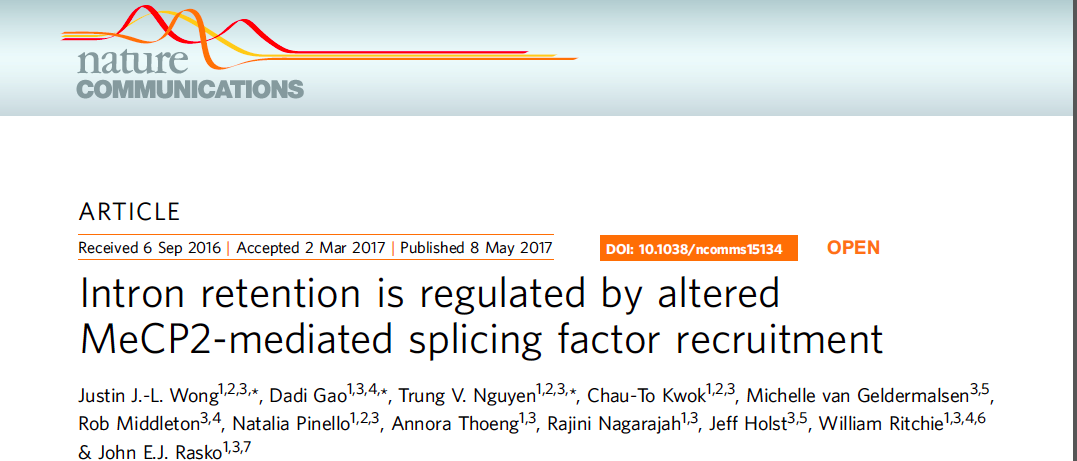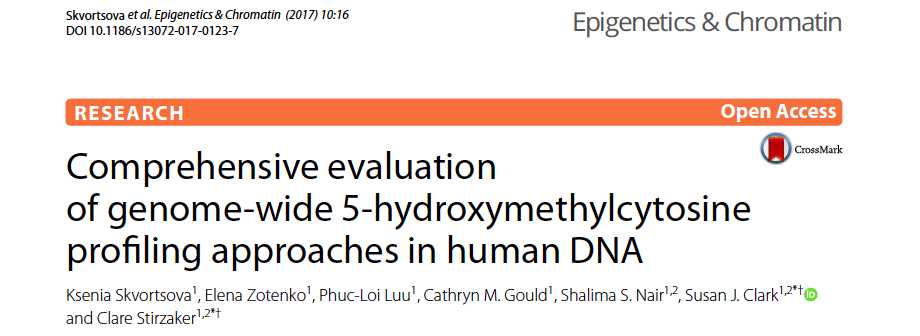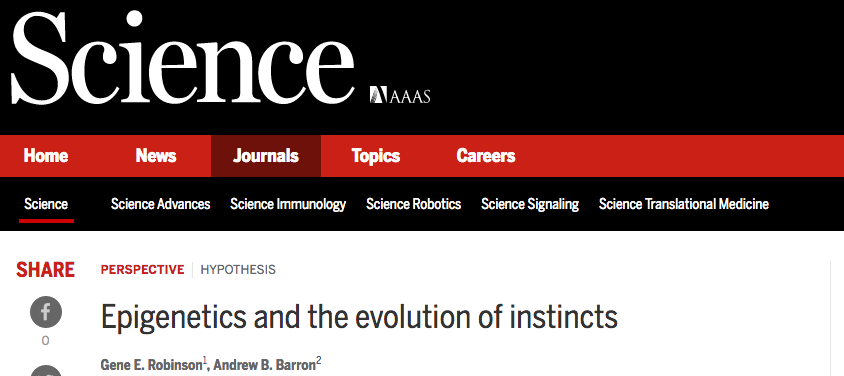Australian epigenetics research news April – May 2017
Recent Posts
Spotlight on: Melanie Eckersley-Maslin 25 November 2022
Spotlight on: Jessamy Tiffen 25 July 2022
ECR Spotlight on: Alex Woodworth 16 July 2022
Epigenetics 2022: Four weeks left for poster abstract submissions! 15 July 2022
Emma Whitelaw ECR Publication Award 30 June 2022
Epigenetics 2022 – Meet the speakers 17 June 2022
ECR Spotlight on: Kate Giles 31 May 2022
Spotlight on: Luciano Martelotto 30 May 2022
Epigenetics 2022 speakers announced 20 April 2022
Spotlight on: Hamish King 18 April 2022
ECR Spotlight on: William Schierding 6 April 2022
Spotlight on: Louise Bicknell 14 March 2022
Categories
News (57)
Opportunities (3)
Publications (7)
Spotlight on … (16)
World epi news (2)
Archived news
2022 (12)
2021 (9)
2020 (9)
2019 (1)
2018 (6)
2017 (6)
2016 (6)
2015 (17)
2014 (1)
by AEpiA| Jun 8, 2017 | News, Publications
– Do you have any research news you would like to share with AEpiA members? Please email us about any recent publications, awards or events!
Comprehensive evaluation of genome-wide 5-hydroxymethylcytosine profiling approaches in human DNA
In a study led by Dr Clare Stirzaker and Dr Sue Clark at the Garvan Institute of Medical Research in Sydney, Skvortsova et al carry out a comprehensive assessment of currently available genome wide 5-hydroxymethylcytosine profiling approaches. The study compares whole-genome bisulphite/oxidative bisulphite sequencing, Infinium HumanMethylation450 BeadChip arrays coupled with oxidative bisulphite and antibody-based immunoprecipitation and sequencing of hydroxymethylated DNA (hMeDIP-seq). The authors compare the different methods for their precision, sensitivity and cost effectiveness and conclude on the most effective uses for each. To read further – here is the full text PDF.
Here are some highlights from the Australian epigenetics landscape over April and May 2017:
Intron retention is regulated by altered MeCP2-mediated splicing factor recruitment
In an elegant study led by Prof John Rasko from the Centenary Institute, University of Sydney, methylation has been shown to directly regulate intron retention (IR). The study showed that splice junctions with reduced DNA methylation are a mark of IR, and that this is widespread in normal and cancer cells. Lower methylation was shown to be associated with lower MeCP2 density at splice junctions and the authors conclude by demonstrating that lower MeCP2 levels result in reduced recruitment of splicing factors and a loss of splicing at these junctions. The study gives molecular insight into why specific introns are retained in health and disease, whereas others are not, and epigenetic regulation has been demonstrated to be key. Click here for the full text PDF.
Epigenetics and the evolution of instincts
In the April edition of Science Magazine, Associate Professor Andrew Barron from the Department of Biological Sciences at Macquarie University in Sydney, together with Dr Gene E. Robinson from the Carl R. Woese Institute in Illinois, USA, expounded on the link between epigenetics and the evolution of instinct. The author’s cite epigenetic influences on behaviour that stabilize long-term changes to neural circuits. They then postulate that “evolutionary changes in epigenetic mechanisms may sculpt a learned behaviour into an instinct by decreasing its dependence on external stimuli in favor of an internally regulated program of neural development”. For a thought provoking read, here’s the PDF.
The Dimensions, Dynamics, and Relevance of the Mammalian Noncoding Transcriptome
Ira Deveson with Simon Hardwick, Dr Tim Mercer and Professor John Mattick from the Gravan Institute of Medical Research in Sydney have written a broad review of the key studies, and advancements in technology, relating to the mammalian noncoding transcriptome. The review collates and explicates on studies that “shape our understanding of the dimensions, dynamics and biological relevance” of these epigenetic regulators. For the PDF click here.
Epigenetics and immunotherapy: The current state of play.
From the Health Research Institute at the University of Canberra Professor Sudha Rao with Jenny Dunn assess “the promise of combined epigenetic therapy and immunotherapy.” The review gives background into epigenetic therapy, the mechanisms of immune escape in cancer and how epigenetic immunomodulation primes the immune system for immunotherapy. The paper points out that there is robust data to combine the two therapies to improve outcomes for patients with many different cancer types. The PDF of this review can be found here.






